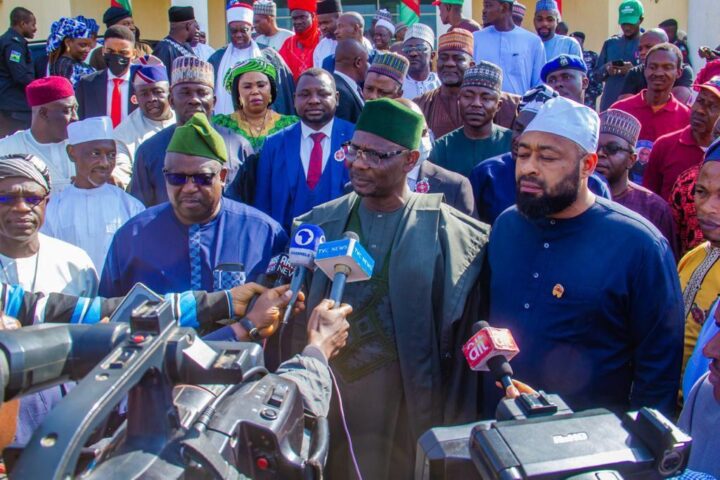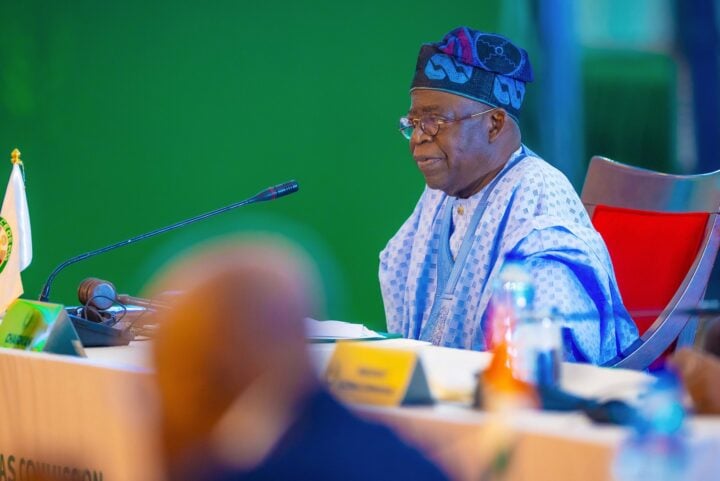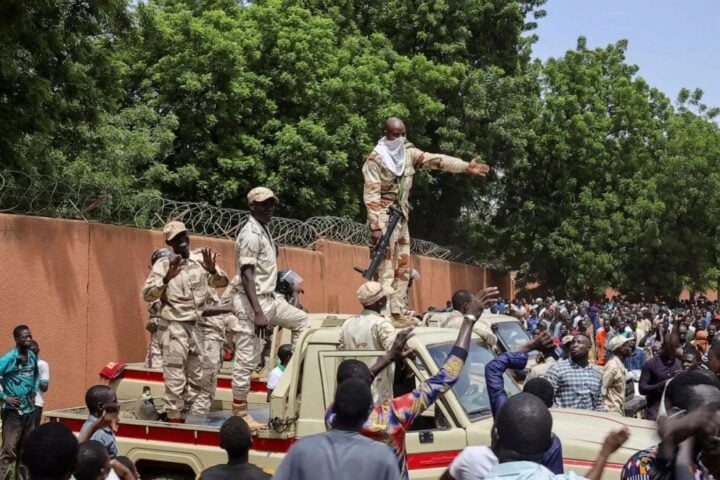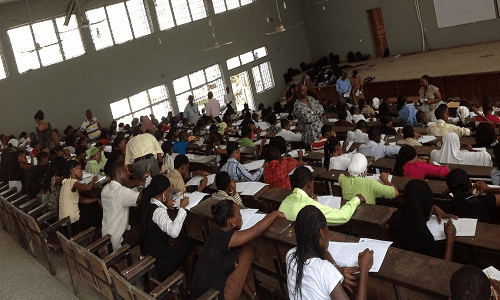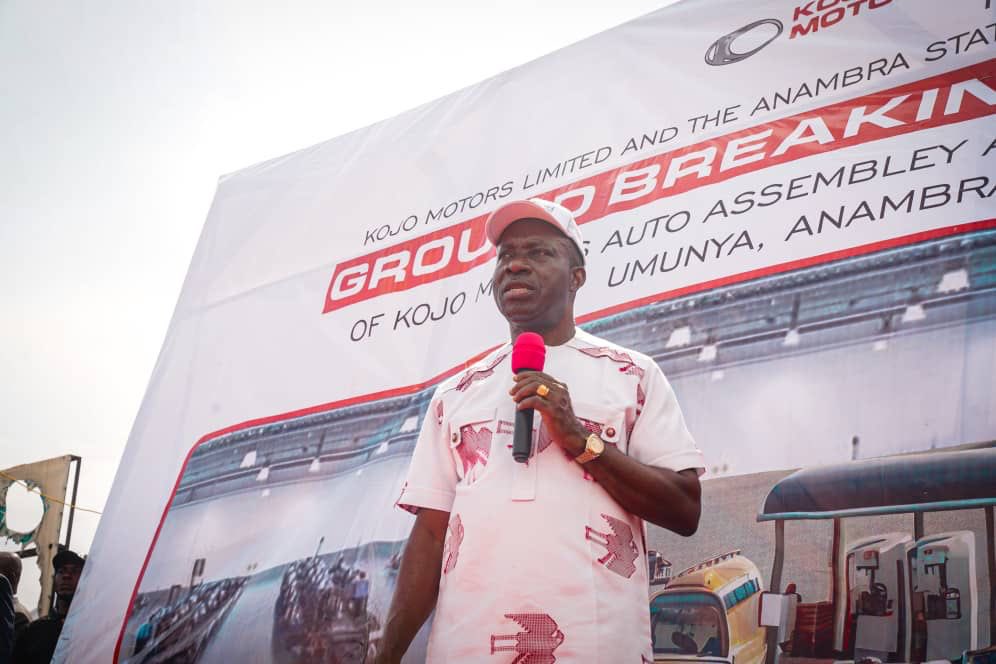‘When you’re in a hole, stop digging.’ (Denis Healy)
The details of the 2024 budget, the 2024 – 2026 Medium Term Expenditure Framework (MTEF) and Fiscal Strategy Paper (FSP) of the government of President Bola Tinubu; plus, the capital flight occasioned by the recent divestments of major multinationals such as GSK, Sanoi and Procter & Gamble from Nigeria, provide context to the deep and recurringeconomic challenges in Nigeria. These challenges, characterised by over 95 percent of revenue spent on debt servicing, increased borrowing,foreign exchange scarcity and macroeconomic instability, have been compounded by significant loss in purchasing power and rising unemployment, due to petroleum pricing and foreign exchange reformsimplemented by some ‘shock therapy’ approach, at the commencement of the current administration on May 29, 2023. These explain the economic hole from which government should stop digging, and some economic history may provide a guide to resolving these problems, while supportingenhanced economic management.
From the N27.5 trillion Appropriation Act of 2024, deficit financing constitutes 50.11percent of the expected revenue. Still within the budget proposal, N8.5 trillion or 31 percent of budget was allocated to debt service, which is almost at par with the N8.7 trillion proposed for capital expenditure. Debt service and personnel allocation of 6.48 trillion, are expected to consume 82 percent of projected revenue. While oil production is set at 1.78 million barrels per day, a trend analysis of actual crude oil production volume from recent years, plus increased oil production by the USA and non-OPEC producers, however shows that the revenue projections for 2024 are unlikely to be met, which will translate to higher deficit. While the budget signed by President Tinubu on January 1, 2024 is based on the N800/$1 exchange rate, the Central Bank of Nigeria (CBN) on December 17, 2023, announced a new exchange rate of N951/$1- making the budget less realistic, with higher prospects for rising inflation above 30 percent and more deficit spending. Insecurity, especially across the food basket states of the country, may mean that reduced farm output for a rising population, will make food inflation- which contributes most to inflation, continue to rise.
With Olawale Edun, Nigeria’s Finance Minister and Coordinating Minister of the Economy recently admitting to the challenges the government faces in attracting foreign direct investment (FDI), the need arises to explore other ways out of the economic quagmire of high debt, that consumes a substantial part of available resources, that contributes in making investment attraction difficult.
Advertisement
As history guides mankind in providing lessons learnt, economic history does guide governments in making informed decisions. The role of economic history in the United States of America, the world’s largest economy, further validates the importance of economic history.
The ‘Great Depression of 1929’ was one of the biggest economic crises in the U.S. and global economy. Given its somewhat unprecedented nature, especially against the then prevalent classical economic doctrine of the likes of David Ricardo, the U.S. government initially struggled to manage the outcomes of the economic depression. The ‘New Deal’ economic program of President Franklin D. Roosevelt, which had some similarities with the expansive propositions of British economist, John MaynardKeynes, however provided a solution to many of the problems arising from the Great Depression. Therefore, when the U.S. and the global economy were faced with the Global Financial Crisis of 2007 -2008, which was arguably the most severe global economic crisis since the Great Depression of 1929, the expansionary economic lessons learnt from economic management history helped ensure that the economic crisis of 2007-2008 were quickly and properly managed. This was done through Quantitative Easing, characterised by the Emergency Economic Stabilization Act of 2008 or ‘Wall Street Bailout’, and the American Recovery and Reinvestment Act of 2009 or ‘Recovery Act’, by Presidents George W. Bush and Barack Obama.
With economic history possibly providing a pathway out of economic quagmires, what then does Nigeria’s economic history possibly offer to the country’s contemporary situation of high debt, macroeconomic instability and low foreign investment?
Advertisement
The last time a new government in Nigeria faced such economic situation was in 1999. With military rule stretching from 1983, and international sanctions that had hampered economic performance, the civilian administration of President Olusegun Obasanjo faced challenging situations. At the time Obasanjo assumed office in 1999, Nigeria’s external debt had ballooned to about $30 billion, due to mismanagement and sanctions, with significant parts of government revenue spent on debt servicing, as total debt-to-GDP ratio rose to 66.13 percent in 2002. Obasanjo mounted a spirited international campaign between 1999 and 2003 for debt relief and lifting of sanctions, which yielded mixed results. While a number of political sanctions were lifted, the economically suffocating debt, similar to what Nigeria’s economy faces now, remained.
President Obasanjo then adopted a different approach to economic management in 2003. He constituted an Economic Management Team (EMT), peopled with Nigerians that had considerable work experience in the international economic system. Given that Nigeria’s public debt was owed largely to foreign debtors such as Paris Club, the composition of the EMT with persons such as Dr. Ngozi Okonjo-Iweala, who until her appointment by Obasanjo as Finance Minister was a high-ranking Vice President of the World Bank, was a strategic fit. This ensured that Nigeria had economic managers that understood the political economy of international finance, and could deploy such experience in supporting the Obasanjo administration attain its economic objectives, especially with liquidating foreign debt.
With greater vigour and a diverse economic management team that had international credentials, a debt cancellation agreement was reached in October 2005 with the Paris Club. By April 21, 2006 when the deal was completed, Nigeria had paid off $12bn in debt, and secured the cancellation of $18bn debt from the Paris Club and multilateral organisations. With this, the country’s total debt-to-GDP ratio fell sharply from 66.13 percent in 2002, to 12.39 percent in 2006 and 11.67 percent in 2007. The liquidation of external debt, provided the Obasanjo administration the fiscal and macroeconomic breathing space, to consolidate on socioeconomic reforms, that put Nigeria on the pathway to becoming the largest economy in Africa and 22nd largest economy in the world by 2014, under President Goodluck Jonathan. While FDI under Obasanjo’s first term had risen by about 100 percent from $1bn to $2.01bn, the nature of his economic team between 2003 – 2007, facilitated a 300 percent FDI increase from $2.01bn to $6.07bn. President Jonathan continued with key members of the team, which contributed to the impressive economic performance earlier explained, as well as FDI rising to its highest level of $8.84bn under his administration.
It must be said that such appointments came with some political costs, as many of the EMT members hardly had any domestic political influence, or made visible contributions to the emergence of President Obasanjo or President Jonathan and their political party at the polls. But with debt servicing consuming over 95 percent of revenue, a rapid drop in debt, similar to what Obasanjo achieved as President, with total debt-to-GDP ratio falling sharply from 66.13 percent in 2002, to 12.39 percent in 2006 and 11.67 percent in 2007, is essentially the kind of economic tonic that the Tinubu administration needs, to be able to meet its objectives, ascontained in his ‘Renewed Hope’ manifesto.
Advertisement
Tinubu assumed office on May 29, 2023 at a time when 96.3 percent of national revenue was spent on debt servicing, a 35 percent difference in value of foreign exchange at official and parallel market- with huge opportunities for arbitrage, unemployment at 33.3 percent, inflation at 22.4 percent and 63 percent of population or 133 million people living in multidimensional poverty. The severity of the poor situation inherited from the previous administration has been further stressed by the Secretary to the Government of the Federation (SGF) and National Security Adviser (NSA), among others. The fiscal and monetary policies initiated by President Tinubu have further led to an increase in the price of petrol from N198 to N617 per litre, while the official value of the Naira has declined by over 50 percent, from N460 per $1, to N951 to $1, with the attendant loss in purchasing power of Nigerians. When the exit of foreign companies with the attendant capital flight, and the auguries of the 2024 budget proposals, and MTEF/FSP of 2024-2026 are added to the mix, it justifies the need for government to stop digging, in the hole it finds itself.
While Nigeria’s economic history from 1999 validates the need for the economic team of the current government to include Nigerians with considerable experience in international economic system, and understanding of the vagaries of the political economy of debt relief, Nigeria’s economic history can also be reviewed a bit more, to further validate the efficacy of this proposition.
The establishment of OPEC after the Yom Kippur war of 1973, made many oil producing countries aflush with petrodollars. Nigeria was not an exception, but lack of proper economic management transformedNigeria’s economy into a largely petroleum dependent economy. The boom–and–burst cycles that come with commodities such as crude oil, have also been a bane on the economy, leading to balance of payment crises. President Shagari of 1979 -1983 used mostly austerity measures, while the General Buhari regime of 1984-85 used not just austerity, but attempted some rudimentary barter trade techniques.
The General Babangida regime of 1985-93 by some contrast, introduced structural reforms in telecommunications, broadcasting, education, finance, and to some extent in petroleum. The reforms in these sectors led to increased private sector participation, and substantially expanded the non-oil sector. Though the reforms were constrained by the vagaries of military politics, which limited the implementation and success of all theeconomic plans, Babangida’s economic team consisting of experts with appreciable international and academic experience such as Kabiyesi OluFalae, Dr. Chu Okongwu and Dr. Kalu Idika Kalu, put in a good shift. For example, Dr Kalu was previously a World Bank staff in the 1970s, and was part of a small group of the bank that introduced value added tax (VAT) in South Korea in the mid-1970s, as part of reforms that contributed to the development of the ‘Asian tiger’. His work also included other Asian tiger countries such as Taiwan and Hong-Kong, plus Japan. VAT was adopted in Nigeria, during his second stint as finance minister in the Abacha administration.
Advertisement
Therefore, an EMT with members that not only have capacity for foreign debt relief, but ability to ‘not waste any crisis’ and use this opportunity for feasible reforms that can unlock new sectors, is required. Achieving all of these will however require economic team members, who have the international experience and leverage to calm the market, persuade existing investors to remain, and furthermore, convince International Oil Companies (IOCs) that have divested and continue to divest from Nigeria, to return.
This economic team recruitment proposition will however be met with the realist political situation in Nigeria, especially if the demography that such a human resource search brings up, is not desirable to the current political players. The potential high political cost of such additions can however be assuaged, given that many of the political associates of the President seem, at face value, to have been compensated. The political and economic benefits that accrued to the Obasanjo administration from adopting the proposed approach, far outweighed the cost. Obasanjo had the luxury to redeploy the then Finance Minister to the Foreign Affairs ministry in 2006, after debt relief had been granted, and in consonance with some realpolitik needs.
Advertisement
To add fillip to the benefits of debt relief as a socioeconomic strategy, it may be important to note that debt relief supported the economic base for the successful launch of the National Health Insurance Scheme, in June 2005, after decades of trying, starting from the 1962 parliamentary bill by Dr. Moses Majekodunmi, the then Health Minister. Indeed, there were no strikes in the sector between 2003-2007. Nigeria’s health sector, currently characterised by unprecedented migration of healthcare professional and some of the highest levels of infant and maternal mortality globally, can definitely make do with such type of intervention.
Of course, those who played previous roles should be unavailable for current roles, due to age, and natural reasons, among others. The most some could do, may be to support such recruitment exercise. There should be Nigerian human capital, preferably advanced educated and experienced economists, not finance managers, who can fit the role. The experience of the international political economic system and network in global finance for the ideal candidate(s) are essential, given that Nigeria was granted debt relief just 18 years ago, and therefore may not be an ideal candidate for such concessions in a relatively short while. Convincing debtors that the humongous debt which started piling up from 2015, without commensurate outcomes, will not reoccur if reliefs are granted, is bound to be a varying tasking exercise that requires the best of hands, capacity, and skill set.
Advertisement
And the expanded team should have more substantive and central roles for members such as Dr. Tope Fasua, whose current Economic Adviser portfolio is at the Office of the Vice President. Perhaps, someone like Arunma Oteh, who has been World Bank (WB) Vice President and Treasurer, where she managed the bank’s $200 billion debt portfolio, as well as the approximately $200 billion asset portfolio of the WB Group, may be an ideal candidate, if available? Her experience as Vice President at African Development Bank (AfDB), and Director General of the Securities and Exchange Commission of Nigeria, should be sufficient for the task of negotiating debt relief, addressing concerns of current investors, and attracting new investments, including from portfolios previously managed at WB.
Still on the political considerations for an expanded economic team, the president may not need to necessarily relieve any of the current membersof their duties, if political and personal cost is too high. Appropriate additional frameworks can be created, such as a Ministry of International Economic Affairs or Special Adviser– but with the appropriate portfolio. The current cabinet is possibly the largest on record, so it might as well be slightly expanded, to get the job done. And still on history, this time political, it may be recalled Dr. Kingsley Ozumba Mbadiwe, then frontlinepolitician of ‘Timber and Caliber’ fame, and first republic Minister of Communications and Aviation, was once appointed “Ambassador Extraordinary and Plenipotentiary”– a novel position, by President Shehu Shagari in the second republic. When asked what the appointment really meant, given that the ambassadorial appointment came without any country of accreditation, K.O. Mbadiwe explained that he would act as Ambassador, only when something ‘Extraordinary‘ happened. As Nigeria is in a bit of an extraordinary economic situation, any extraordinaryeconomic appointment to resolve the extraordinary economic situation, is therefore justified.
Advertisement
Nigeria’s economic challenges as previously stated, also includes foreign exchange scarcity. The level of blocked funds for foreign airlines stands at $792 million, which is highest in the world, with many of them considering whether to continue operations, or exit. The exit of foreign companies such as GSK, Procter & Gamble and IOCs, has had profound implications on the economy, leading to a reduction in FDI, significant job losses, and a decline in the economy’s overall productivity. The exit of these multinational companies has created a void in technological expertise, infrastructure development, and supply chain networks, with severe negative economic implications.
Unilever’s home care and skin cleansing division has also ceased operations in Nigeria this year. Unilever, formerly Lever Brothers Nigeria Limited, was the foremost company to begin large-scale manufacturing in Nigeria on April 11, 1923. That the company, which is still expanding globally, diversifying and evolving into new areas of consumer products, has started gradually closing its business in Nigeria, after a century, does not say well of Nigeria. There is an urgent need to prevent a possible knock-on effect of continuous divestment by international companies and investors.
As Nigerians commence a new year in 2024, they will naturally hope that the year leads to positive economic outcomes. It is the responsibility of government to ensure these positive expectations are met. Nigeria’s economic history suggests the need for an economic team with members that have proven experience of the international economic system, and political economy knowledge of debt relief, so that debt relief can ‘allow Nigerians to breathe’. We look forward to such human resource additions, for enhanced economic management, FDI and positive socioeconomic outcomes.
Dr Uwanaka writes from African University of Science and Technology, Abuja. [email protected].
Views expressed by contributors are strictly personal and not of TheCable.


